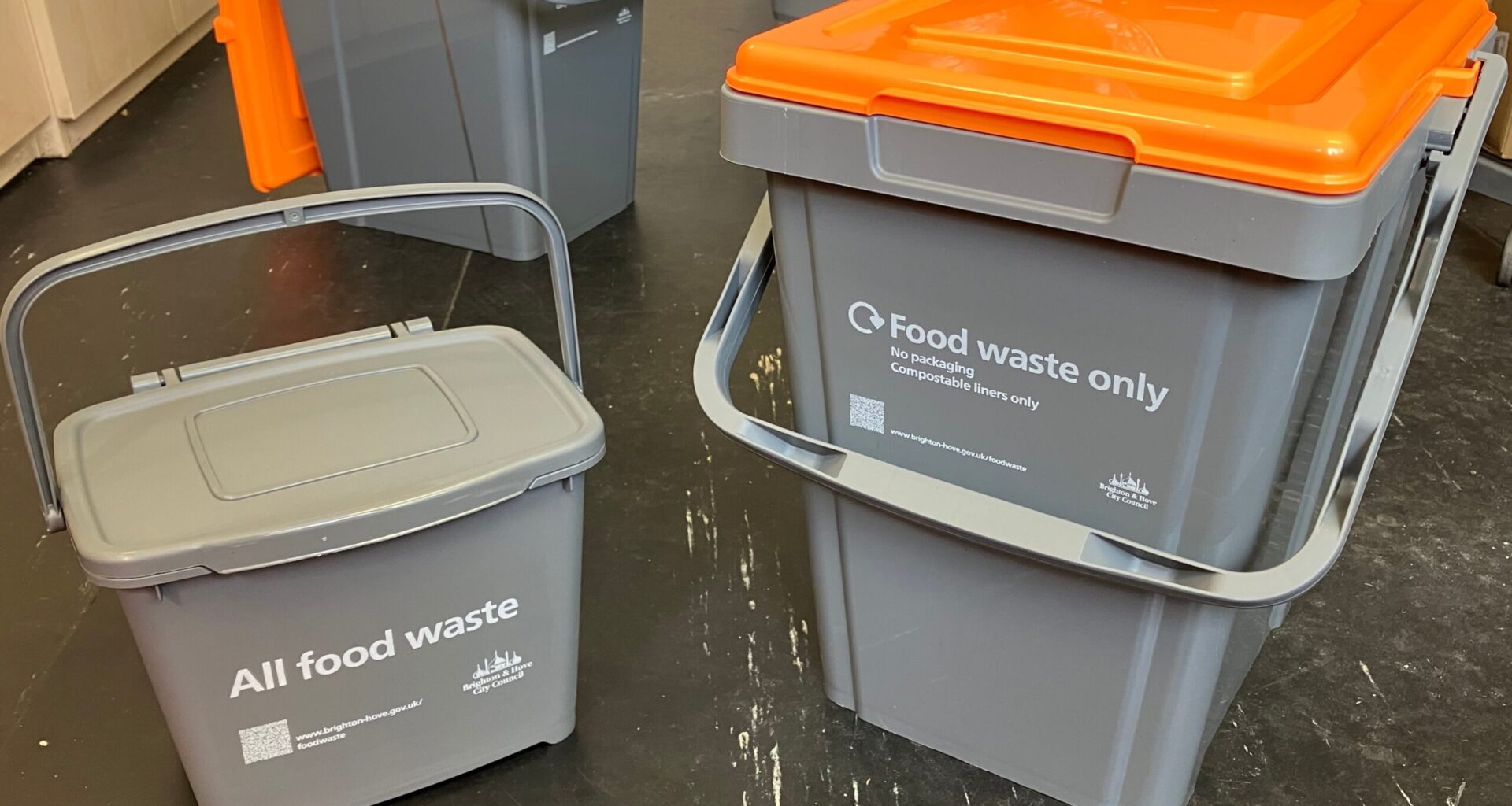People living in the east of the city are to be the first to get food waste collections, start next month.
Residents in Saltdean, Rottingdean, Ovingdean, Woodingean and Brighton Marina will receive a starter pack which includes a kitchen caddy, compostable caddy liners, and either an outdoor caddy (or access to a shared food waste bin for some blocks of flats).
Households will also receive a postcard with details of their start date and collection day, which will start from 15 September. Collection days for refuse and recycling collections will not change.
Residents in these areas will be able to start putting both cooked and uncooked food in their caddies a week before their first collection date instead of their waste bins.
Food waste accounts for more than a third of the waste found in household bins – that’s more than 21,000 tonnes going to waste every year.
The food waste will be turned into compost to nourish the soil and grow more food.
Encouraging residents to recycle food waste will also save money on waste disposal for council taxpayers, as it keeps food waste out of the household waste stream.
Councillor Tim Rowkins, Cabinet member for Net Zero and Environmental Services, said: “I’m excited that food waste collections are being introduced in the city.
“This is part of the council’s commitment to help residents recycle more, reduce waste and protect the environment.
“Food waste contributes a significant amount to the waste we throw away.
“From 15 September, residents from Saltdean to Brighton Marina will be able to put out food waste for collection so it can be turned into compost and fed back into the soil.”
The rollout is being carried out in four phases, each of which will inform the next, so some dates may e subject to change.
The indicative timeline is:
From 15 September 2025 – 11,000 households in the east of city
October 2025 – 29,500 households in the north of city
November 2025 – 31,500 households in the west of city
By March 2026 – 76,000 households in central and communal areas
By next April, food waste collections will cover 148,000 households, including flats and communal spaces.

